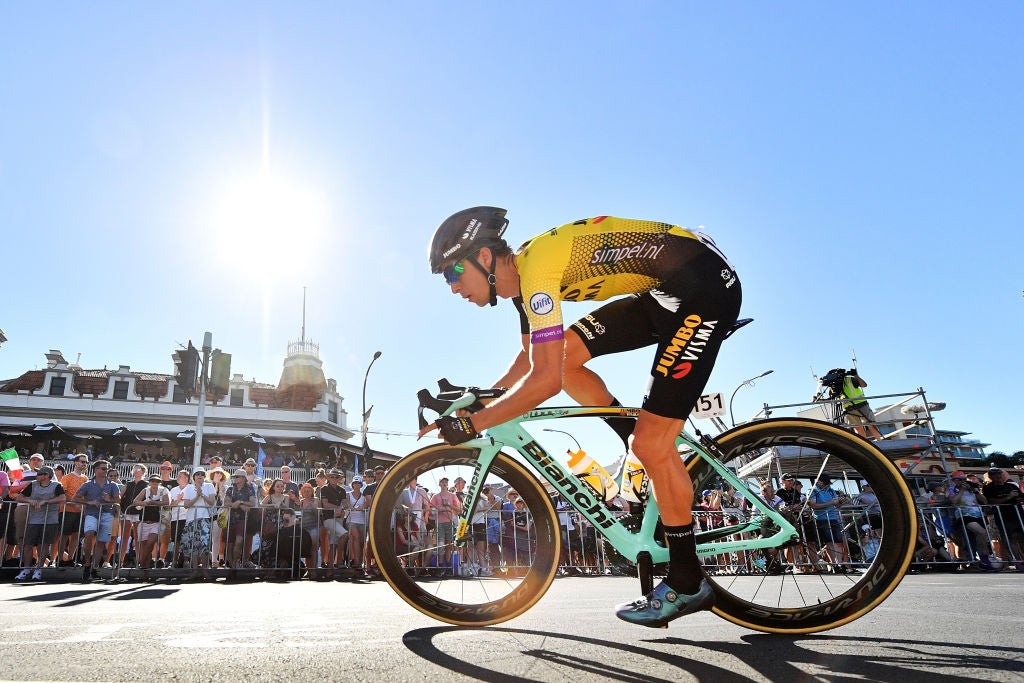Fast Talk podcast, ep. 82: The importance of adaptations, with George Bennett

The VeloNews Fast Talk podcast is your source for the best training advice and most compelling insight on what it takes to become a better cyclist. Listen in as VeloNews managing editor Chris Case and our resident physiologist and coach, Trevor Connor, discuss a range of topics, including sport science, training, physiology, technology, nutrition, and more.
Recovery, recovery, recovery… you’ve heard us talk about it before. You’ve heard a lot of our guests preach about its importance. We’ve emphasized again and again how one of the biggest mistakes athletes make is to not get enough recovery.
Well, now let’s confuse you a bit. The ultimate goal of training is, of course, to adapt. And there’s a critical distinction between adaptation and recovery. They are not the same thing. In fact, sometimes what helps one, hurts the other.
Recovery is about doing what you can so the legs are ready for your next workout. Adaptation is about the body repairing the damage caused by training—if the training provides enough stress, it will repair the system to come back stronger. But what’s good for that repair process may have you feeling less than perfect on the bike the next day.
Today, we’re going to dive into this important difference and focus on adaptations—what causes them and how to aid them. We’ll talk about:
- First, the difference between recovery and adaptation.
- Second, how the immune system is intimately involved in both, and why we’ve come to the realization in recent years that reducing inflammation can be counterproductive.
- Next, we’ll talk about the three stages of repair. Remember that training does damage. We are weaker after hard rides. It’s during the repair process that we get stronger, and the immune system is the repair man. Much like the local cable guy, the immune system is going to work at its own pace regardless of what you do or say.
- Next, we discuss how there’s a delicate balance between damage and repair, and when you get out of balance by doing too much training, it starts a vicious cycle that prevents further adaptations and leads to burnout
- We’ll talk with George Bennett, who put in a fantastic Tour de France performance, helping his GC leader, Steven Kruijswijk, land on the podium. George discusses what he does to aid adaptations.
- Finally, we’ll finish with a conversation about the things that do help adaptations and the things that hurt it, despite the fact that a lot of endurance athletes do them.
Our primary guest today is George Bennett, member of the Jumbo-Visma WorldTour team. George joins us for part of the episode—we spared a rider of his caliber from having to sit through Trevor’s initial lecture on immunology.
We also hear from Joe Friel, author of “The Cyclists Training Bible.” In the most recent edition of his book, Joe makes the important distinction between recovery and adaptations.
Next we talk with Brent Bookwalter of Mitchelton-Scott. In order to adapt, we have to first do damage. Brent talks with us about the important balance between damage and repair.
Then we catch up with Boulder-based coach extraordinaire Colby Pearce. And finally, we talk with Paulo Saldanha, the owner of PowerWatts. Paulo talks about ways to find the right amount of damage, and why we should rethink taking antioxidants.
Fast Talk is available on all your favorite podcast services, including iTunes, Stitcher, Google Play, and Soundcloud. If you enjoy the podcast, please take a moment to rate and comment on iTunes after listening.